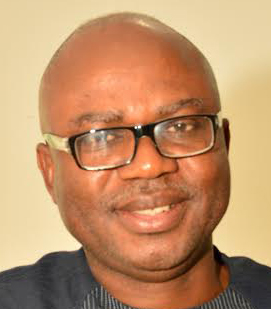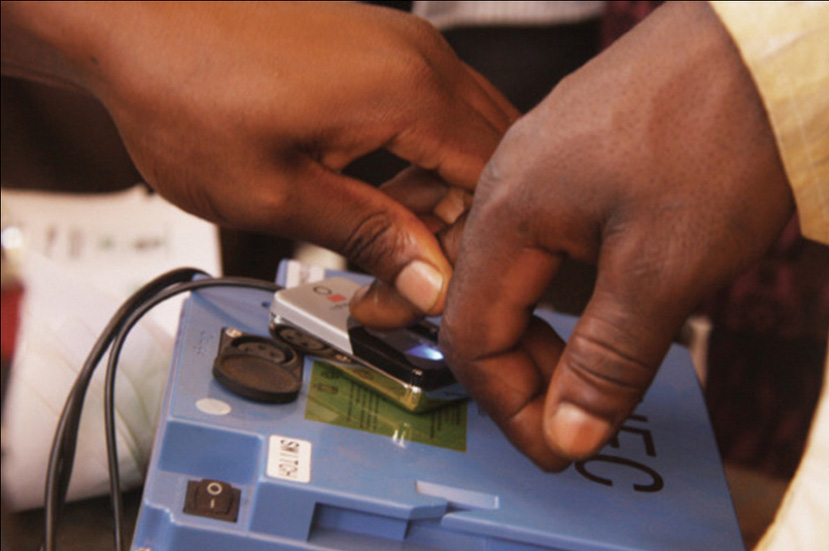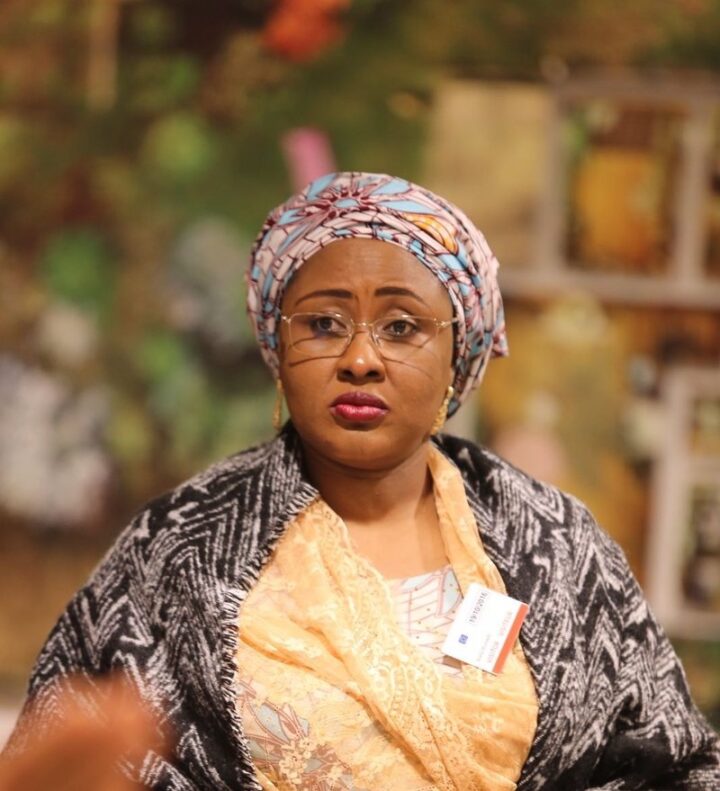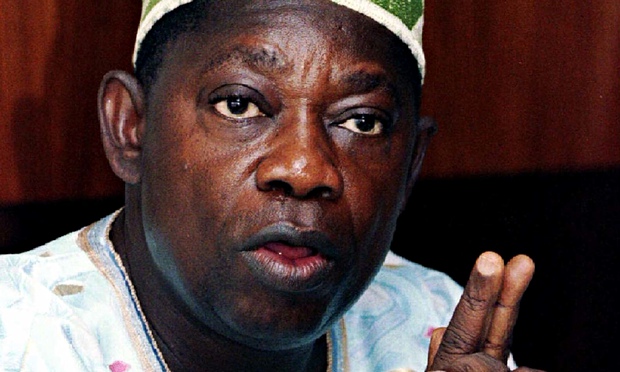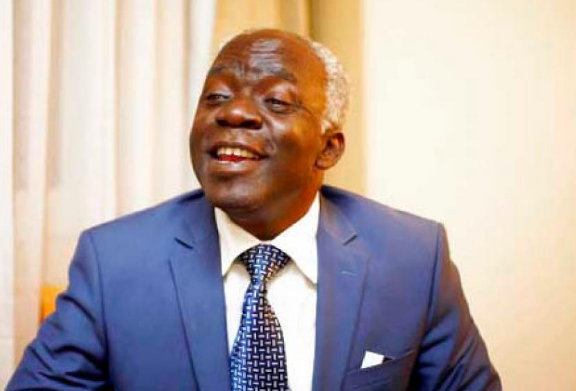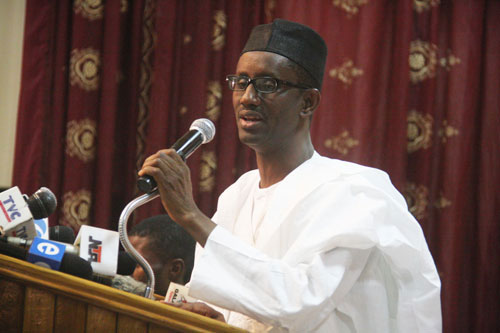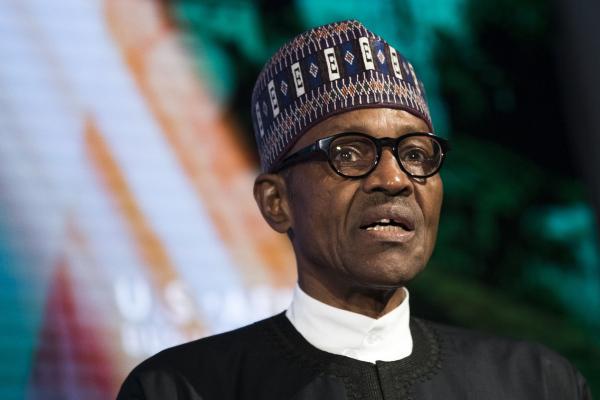File photo depicting voter registration in Nigeria
In every local government area today, Nigeria boasts men and women who can lead it effectively without distractions. But such people are not found on political platforms because the system makes their emergence impossible.
I’m referring to the system instituted by the British and nurtured by cultic men and women who are also kingmakers. Thank God that generation is dying out; we only need to make sure their children do not succeed them. And we can do this by removing the influence of money in our politics.
Nigerians’ patience is legendary. In 2019, they may still allow themselves to be bamboozled by their oppressors who will offer to raise the dead and make Nigeria look like paradise. But we could utilise the power of our votes (and eternal vigilance) to stop the plutocrats in their tracks.
Let’s seek the ideal candidate for president who can fix Nigeria in a matter of months, not even four years. His name won’t ring a bell – he is yet to be “tested and trusted” in the act of corruption and bad governance. He however works very hard, is knowledgeable, sensible and compassionate especially to the poor and the handicapped.
Advertisement
Look at the several obstacles placed in the way of this well-meaning Nigerian wishing to serve his country. INEC-approved spending limits for aspirants to the different offices: a presidential candidate must not spend more than N1billion; a gubernatorial aspirant, N200million. Then, the major parties prescribe fees to be paid by those wishing to contest on their platforms: it’s N27million for a presidential hopeful; N10million for a governorship candidate.
When we ask a presidential candidate to spend N1billion on an election, are we not encouraging him to steal public funds when he gets into office? A president’s legitimate salary in four years amounts to less than N20million. A governor is supposed to earn no more than N3million each year, yet we permit him to use N200million to fight an election. Added to these is the disgusting fact that INEC has to be given hundreds of billions to organise the fiesta meant to convince the electorate that they indeed choose their leaders.
We should thank Gani Fawehinmi again for fighting against this system that recognises and rewards thieves and robbers but oppresses the poor and the honest. It was Gani’s efforts that led to the registering of political parties that did not have billions of naira to dispense in 1998.
Advertisement
Winning an election here used to be do or die; now it’s more than a matter of life and death. With the rate of unemployment soaring and businesses collapsing, politics has become the easiest route to wealth without work (one of the vices identified by Mahatma Ghandi). A Nigerian president awards oil blocks – and the beneficiary can sell his papers for N300billion without knowing the oil site. A state governor can transfer 20% of his state’s monthly allocation to a private bank account in Europe and still remain popular. Even a local government chairman or head of a government agency routinely awards fictitious contracts worth tens of millions of naira to himself or his cronies. A senator or rep doesn’t have to stress himself: without raising even one motion in four years or attending the sittings of the legislature, he is assured of at least N300million annually. Almost every officeholder is after the riches that offices provide in Nigeria. So, why wouldn’t they kill anyone attempting to stop them?
There is arguably no clean billionaire in Nigeria today! What job can pay so much that a man can afford to throw away N3billion in one election period and still get by? Nobody can save N1billion – not even N500million – from legitimate incomes in one lifetime in Nigeria. Therefore, anyone who spends such amount in order to fight an election is any of these: a thief, a debtor, a deceiver, a looter, or the candidate of someone else who is any of those.
The sad fact is that the Nigerian system excludes anyone without these ugly credentials. That closes the door for a man of the people to emerge as a Nigerian leader. And that is why things can’t get better until the people take their destiny into their own hands. I know Nigerians are too poor and too hungry to turn the apple cart; however, they either win or continue to die in silence while their oppressors devise more schemes to keep them in bondage.
Where would our ideal presidential candidate begin to heal Nigeria — this poverty-infested and fraud-ridden country?
Advertisement
If he were to be elected president, positive action would begin right from the Eagle Square. There would be something akin to a state of emergency throughout Nigeria, because he’d suspend some sections of the constitution. A conference to draft a new constitution within three months would be set up. In his memo to the conference, he would urge them to consider having a weak centre in a two-tier structure: the provincial and federal governments; no more state or local governments.
In his inaugural speech, he’d postpone indefinitely the swearing-in of members of the legislature at federal, state and council levels. (That would save the nation N1 trillion each year.) It wouldn’t be an unconstitutional act because the constitution provides that government exists for the public good. It also provides for a state of emergency if need be.
Next, he’d place a ban on all imports except essential medicines and equipment. Any act of corruption would attract the death penalty. It would be compulsory for everyone to declare his assets and liabilities publicly. Every source of wealth must be laid bare, and all unexplained assets would be forfeited to the state. There would be close monitoring of revenues from oil and others. The weekly sale of foreign currencies would end; banks or importers would be free to source their foreign exchange anywhere but the Central Bank. Of course, the naira would be transformed: on the road to a cashless society, coins would be reintroduced.
Every Nigerian aged 18 and above would be on the payroll (each would receive a minimum of N5,000 per month); the data about each person would be used to compile the voter register, national identity card and, to a large extent, the population census.
Advertisement
All tertiary institutions might be shut for two years during which a new education policy for the country would be formulated. It would be a criminal offence to seek medical attention outside Nigeria.
Would you vote for this candidate? The current system has not created room for him to emerge from any of the big political parties. With only N1million in his account, he cannot convene three meetings. If, however, 50 million impoverished Nigerians donated N100 each to this candidate, he would have N5billion with which to fight the moneybags.
Advertisement
If only we would resolve to effect a change in Nigeria, he could win. As Barack Obama did. As Emmanuel Macron has. Believing that power is in the hands of God, we remain hopeful.
+234-8054100220 (SMS/WhatsApp only)
Advertisement
Add a comment
